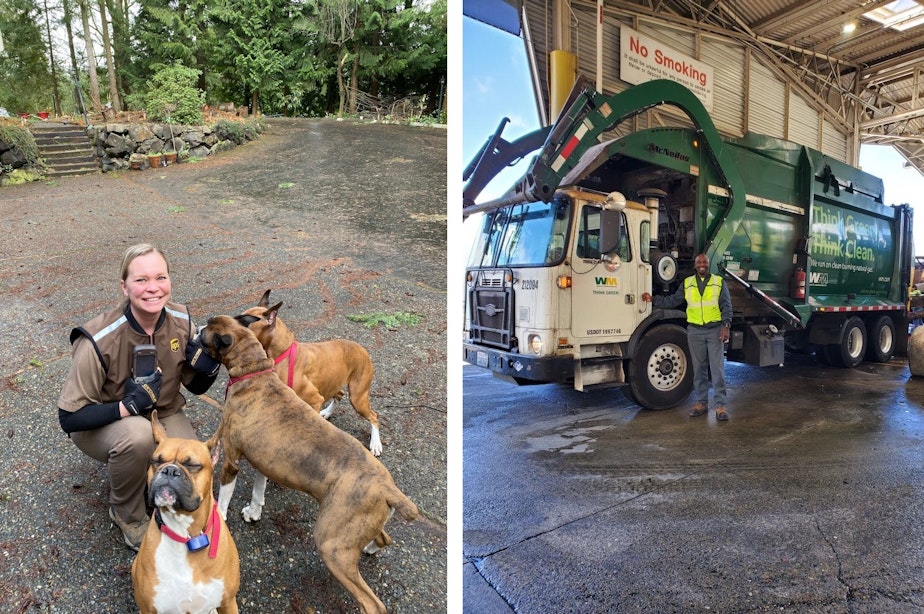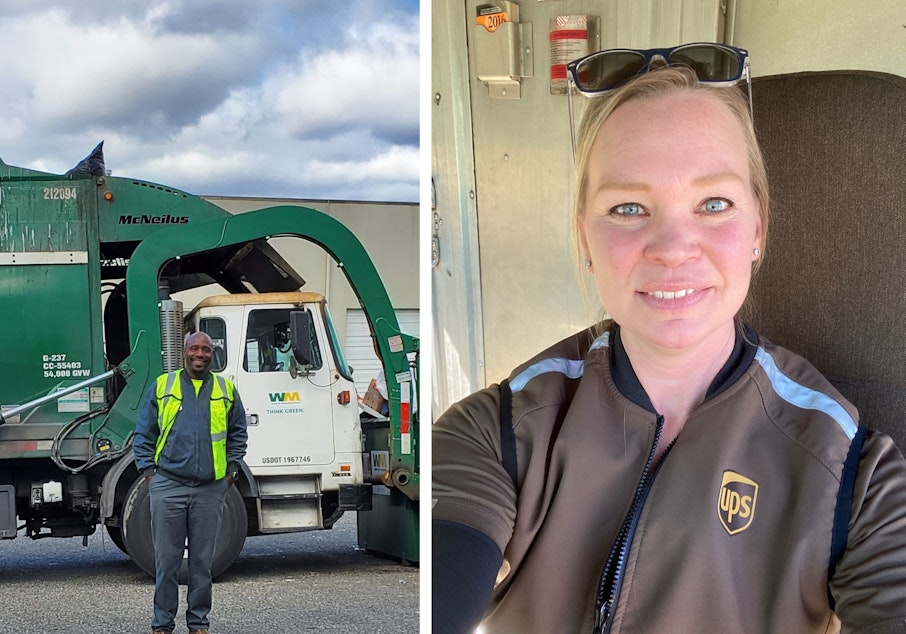Washington's essential workers face risks, choose to serve anyway

Essential workers –workers that many of us take for granted – are now on the front lines of the fight against the coronavirus, because they can’t work from home.
The list of essential workers approved by Governor Jay Inslee includes health care workers of course, but it also includes many other types of jobs.
We checked in with a few essential workers to see how they’re feeling about their jobs right now.
In some ways, essential workers are lucky because they have jobs right now. But they’re also taking on personal risk by exposing themselves, physically, to more people. And so, they consult carefully with their families. And they keep working anyway.
Laurel emmel has driven for the United Parcel Service for 23 years. She was enroute in Enumclaw when we called. She pulled over and took her lunch break early so she could talk to us.
“I can look in the back of my truck right now, and see a ton of Hello Fresh," she said. Those are meal kits, for people to cook at home. She also delivers chemotherapy medication, and insulin, “so people that don’t necessarily want to go into a doctor’s office or a clinic or even a pharmacy where there are other sick people – are getting their stuff delivered directly to their door and it’s limiting their contact as well."
Gemmel is aware of the risks. Her husband just lost an uncle to coronavirus.
“It’s hitting a little close to home," she said. "And we would all rather that I didn’t have to go out and do this. But these are my neighbors and my friends. And if I can help keep one person from getting sick, that makes me happy.”
Here’s what she wants you to know: Don’t open your door to greet your UPS driver – just wave through the window.
And please don’t order frivolous stuff right now. People are depending on her. And everything we order increases the risk of exposure for everyone.
“I really wish people wouldn’t be sitting in quarantine and shopping because they’re bored," she said. "Because we’re trying to protect our families.”
So that’s one kind of essential service: the people who bring you stuff.
At the other end, garbage truck drivers are taking stuff away, “because of the health risks that come into play when garbage doesn’t get picked up,” explained Richard Mason-Oglesby. He's a driver for Waste Management in communities from Mount Vernon to Kirkland.
He doesn’t think of his job much differently today.
“It’s just everyday business as normal,” he said. He was already wearing gloves, to move garbage receptacles around.

He can’t go out to coffee with other drivers, anymore, which is hard. But he isn’t letting the risk of exposure worry him too much. This is a guy who served 12 years in the army. He was in Iraq.
“So I know what it’s like to be on the front line, and still have to do my job. So I think from that aspect, that’s what makes me so optimistic: to serve my country or my community. It’s a service that’s needed out there, you know. I have a job to do and I try to do the best I can.”
Here’s what Mason-Oglesby wants you to know: You know how some people say, when they meet a veteran, “thank you for your service?” You can say it to garbage collectors, too.
“That stuff means a lot to us. To all of us, you know,” he said.
The governor identified 158 kinds of workers considered essential.

